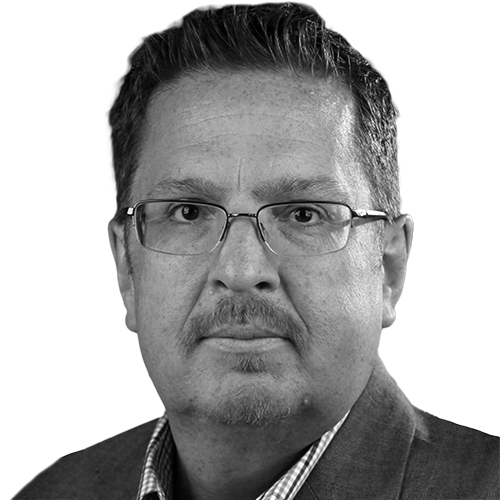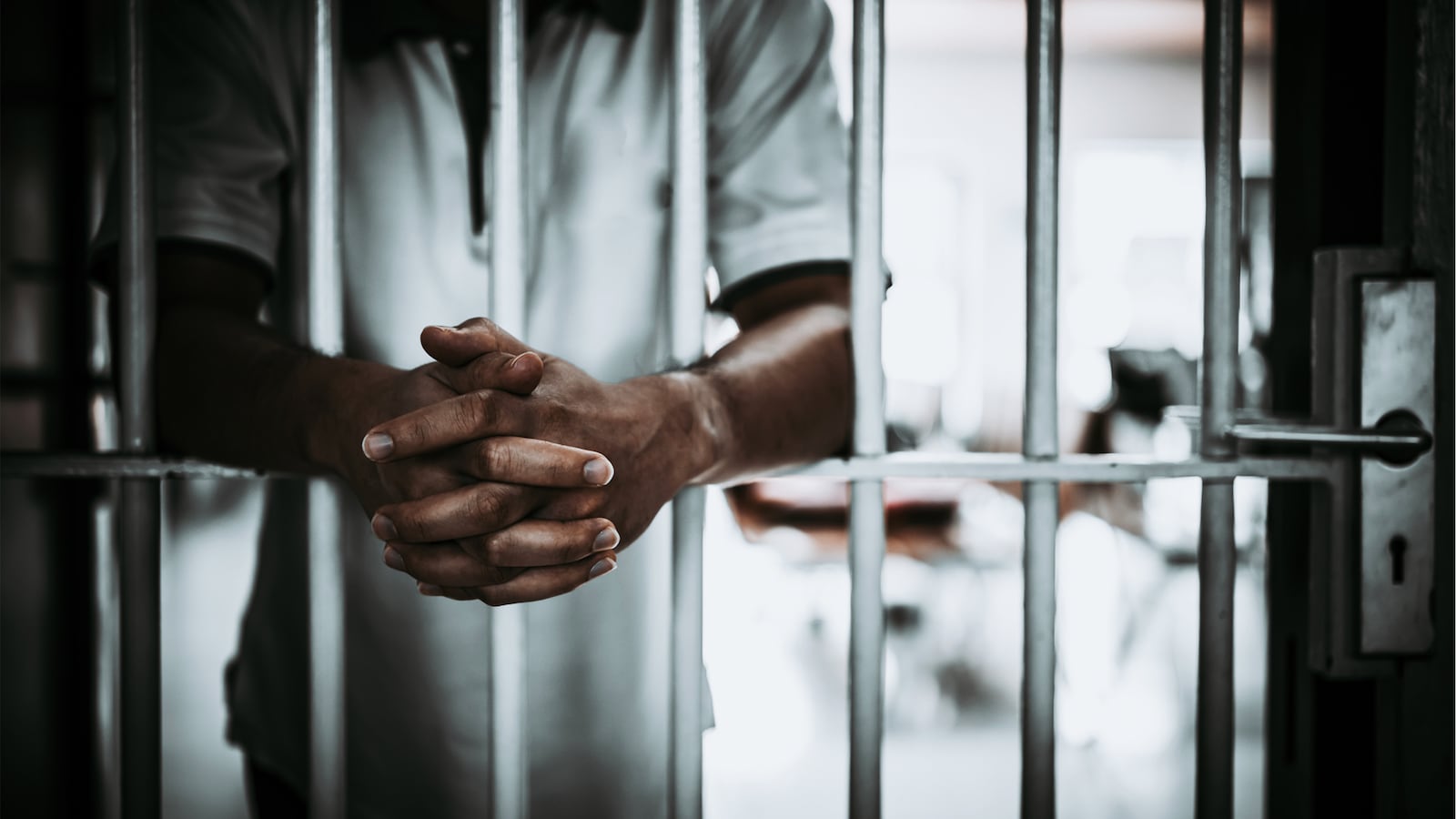Three decades ago, a federal judge in St. Louis used a beach metaphor to describe the cruel nature of mass incarceration in the United States.
“The police have no difficulty in finding these offenders,” U.S. District Judge Clyde S. Cahill wrote in 1990. “They scoop them up from the corners of North St. Louis like shovelfuls of sand from a beach; however, they still need assistance and deserve treatment even while they are in jail. These persons are still men and women who are entitled to be treated with dignity as human beings.”
Cahill, the first Black federal trial judge from St. Louis, was sitting in judgment on a lawsuit alleging horrific conditions at a jail in his city known as The Workhouse, but he could well have been describing New York’s Rikers Island in 2021, where 11 people have perished this year while in the state’s care. Cahill continued:
“While it is both natural and predictable to expect the greatest concentration of law enforcement to be centered in those areas where crime appears to be more prevalent, it is also axiomatic that abuses there are likely to be condoned or ignored. These areas are usually in the poor and minority neighborhoods where jobs are scarce, education is substandard, and the promise of the ‘American dream’ has died… Mass detention for petty offenses now may give temporary relief but it only postpones the misery to come.”
At the time Cahill wrote those words, civil rights activists were seeking to close The Workhouse in St. Louis, just as similar activists have been trying to do with Rikers in New York. Cahill was lamenting the circumstances that led to overcrowding in city jails, a vexing problem, that hasn’t gotten much better in the years since he wrote those words. In 2019, there were signs of progress, like footprints in the sand, as the Board of Aldermen in St. Louis, and the City Council in New York, each approved plans to close their respective troubled jails, eventually.
Closing a jail is no easy business. Who gets released? Where do those folks go who are accused of violent crimes? What more humanitarian holding facility replaces that which was deemed by federal judges or elected officials as inadequate?
The problem in Gotham is the same as the Gateway City: Too many people are held in American jails who don’t really belong there. That’s why New York state Sen. Julia Salazar’s “End Predatory Court Fees Act” is so important. The underlying purpose of the bill is to reduce the criminalization of poverty. In every city and every state in America, too many people are jailed at least in part because they’re poor.
There are people in Rikers today that are there for a “failure to pay” charge, meaning they were jailed because they didn’t pay the fines and fees they were issued in some previous court case, often a misdemeanor. The same is true at jails in St. Louis, in Denver, in Los Angeles, and in every major city and small town in America. This is the seedy underbelly of the criminal justice system: For too many people, it begins an inescapable cycle of poverty. Get arrested for shoplifting; go to jail on a bail you can’t afford; plead guilty to reduced charges to get out of jail; go right back after failing to realize that guilty plea comes with a hefty bill of court fines and fees, sometimes even a bill for your time in jail.
“In practice, we’re locking up so many people because they are poor,” Salazar says. “Right now, a substantial number of the people at Rikers are in there for their inability to pay fines, fees and surcharges. And certainly, the vast majority of them are in there for their inability to pay cash bail.”

Salazar started studying the issue of predatory fines and fees after the New York Comptroller Scott Stringer published a comprehensive report in 2019 examining how the attempts to use the court system to collect massive amounts of fines and fees led to inequitable results without actually collecting much in revenue. She is a convert to a growing movement of lawmakers, civil-rights lawyers, and activists who are trying to reduce or erase the ways in which the courts extract wealth from poor people in the name of justice.
Salazar’s bill would do away with nearly all court fines and fees in New York courts, at the municipal and state level, it would end the practice of jailing people for failure to pay, and it would add more requirements to make sure judges hold ability-to-pay hearings before requiring any defendants to pay punitive fines.
What Salazar has identified in New York is a problem across the nation, in Red states and Blue states, where for too long, particularly after the Great Recession of 2008, state legislatures and other bodies turned to fines and fees as sort of a back-door tax to fund various government services.
The reality is that it’s not a very efficient tax, because most of the people involved in the court system are poor, and so the courts often spend more money trying to collect than is owed in the first place. It’s counterintuitive. That’s why there is a growing movement to end the criminalization of poverty, by reforming or eliminating cash bail, ending predatory fines and fees, stopping the suspension of driver’s licenses for the failure to pay court costs.
In the U.S. Senate, a bill sponsored by Senators Chris Coons (D-CT) and Roger Wicker (R-MS) would create incentives for states to stop the insidious practice of suspending driver’s licenses for failure to pay court fines and fees. It’s the most incongruous of actions: How is a person supposed to drive to a job to make money to pay court fees without a driver’s license? The bill passed out of committee in October. And in the U.S. House, Rep. Jerry Nadler (D-NY) has sponsored a bill to create a path to federal funding for local jurisdictions that try to do away with fines and fees.
Not even one of these proposals would do anything to reduce the cause of public safety; and all of them would increase opportunities for people who do end up involved with the criminal justice system to stay with their families, keep their jobs, and reduce the costly and inequitable mass incarceration that continues to be a stain on the American system of jurisprudence.
The “misery to come” that Cahill predicted is apparent in the deaths at Rikers just this year. One crisis—putting too many people in jail mostly because they are poor—cannot be disconnected from the other—failing to protect the civil rights of people who are in custody.
Using the courts to collect revenue from poor people is both cruel and irrational, Salazar says. She hopes that next year, New York becomes the first state in the nation to entirely ban the practice.
“I think people understand that this is not a sustainable way to raise revenue,” Salazar says. “It’s simply wealth-based detention.”
Tony Messenger is the metro columnist at the St. Louis Post-Dispatch. His first book, Profit and Punishment: How America Criminalizes the Poor in the Name of Justice, (St. Martin’s Press) came out Dec. 7.






